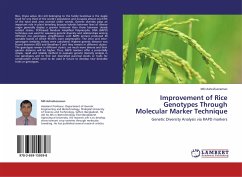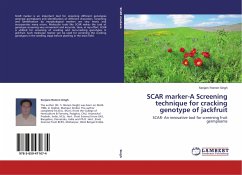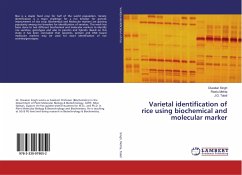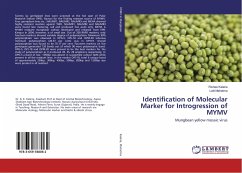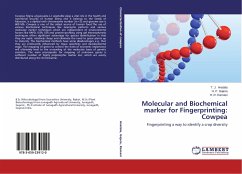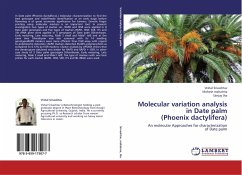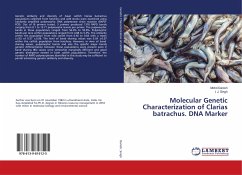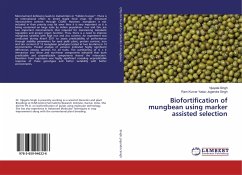Rice, Oryza sativa (2n=24) belonging to the family Graminae is the staple food for one third of the world s population and occupies almost one-fifth of the total land area covered under cereals. Genetic diversity plays an important role in plant breeding because hybrids between lines of diverse origin generally display a greater heterosis than those between closely related strains. PCR-based Random Amplified Polymorphic DNA (RAPD) technique was used for assessing genetic diversity and relationships among different rice genotypes. Amplification with RAPD primers produced 46 scorable bands of which 95.65% were polymorphic. The intra and inter-genotype's similarity indices were calculated. Highest genetic distance was found between IR29 and Binadhan-5 and they remain in different cluster. The genotypes remain in different cluster, are much more diverse and their genetic distance will be higher. Thus, RAPD markers offer a potentially simple, rapid and reliable method to evaluate genetic diversity analysis in rice genotypes and to find out diversified parental stocks or traits for conservation which need to be used in future to develop new desirable traits or genotypes.
Bitte wählen Sie Ihr Anliegen aus.
Rechnungen
Retourenschein anfordern
Bestellstatus
Storno

